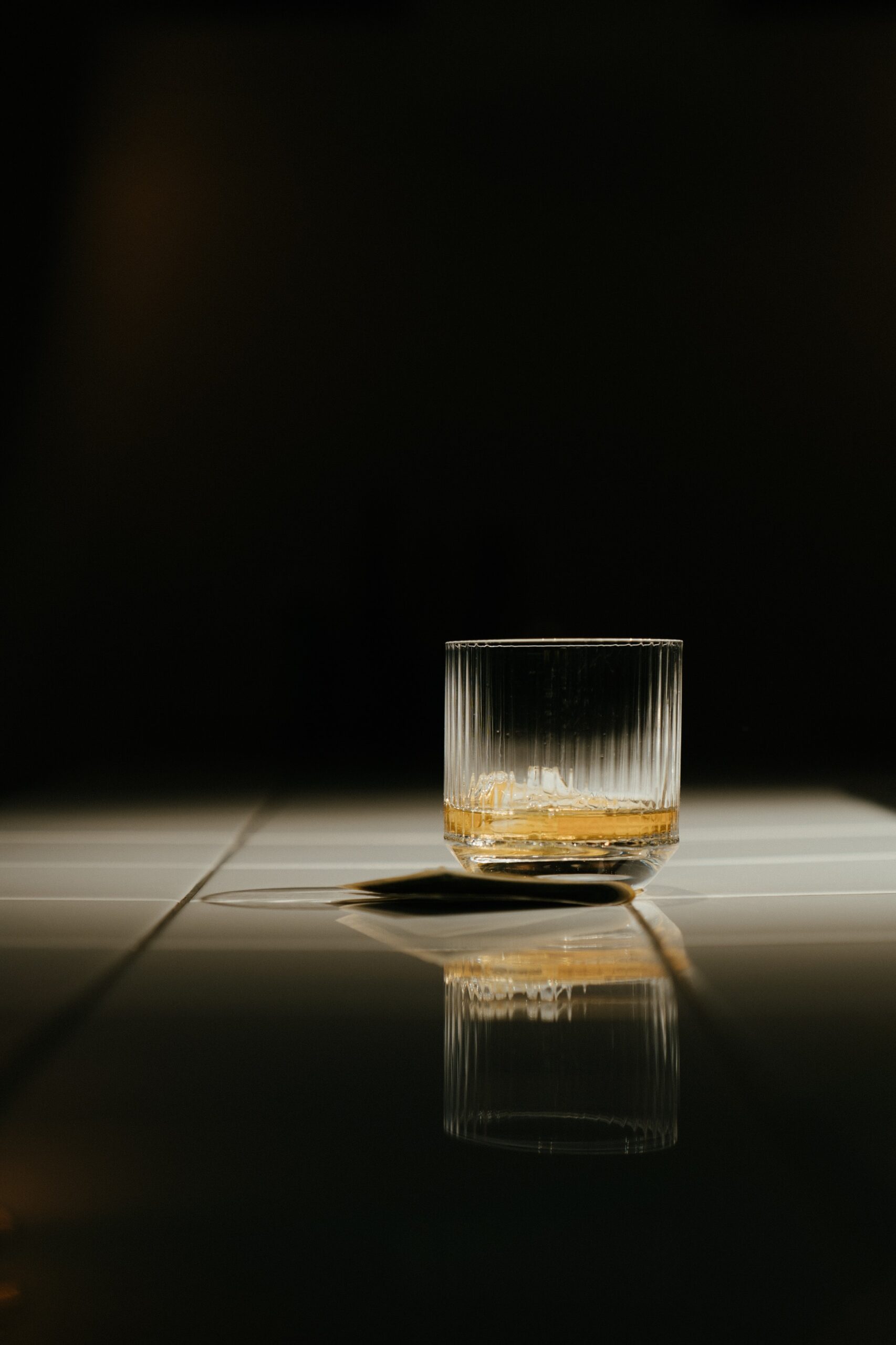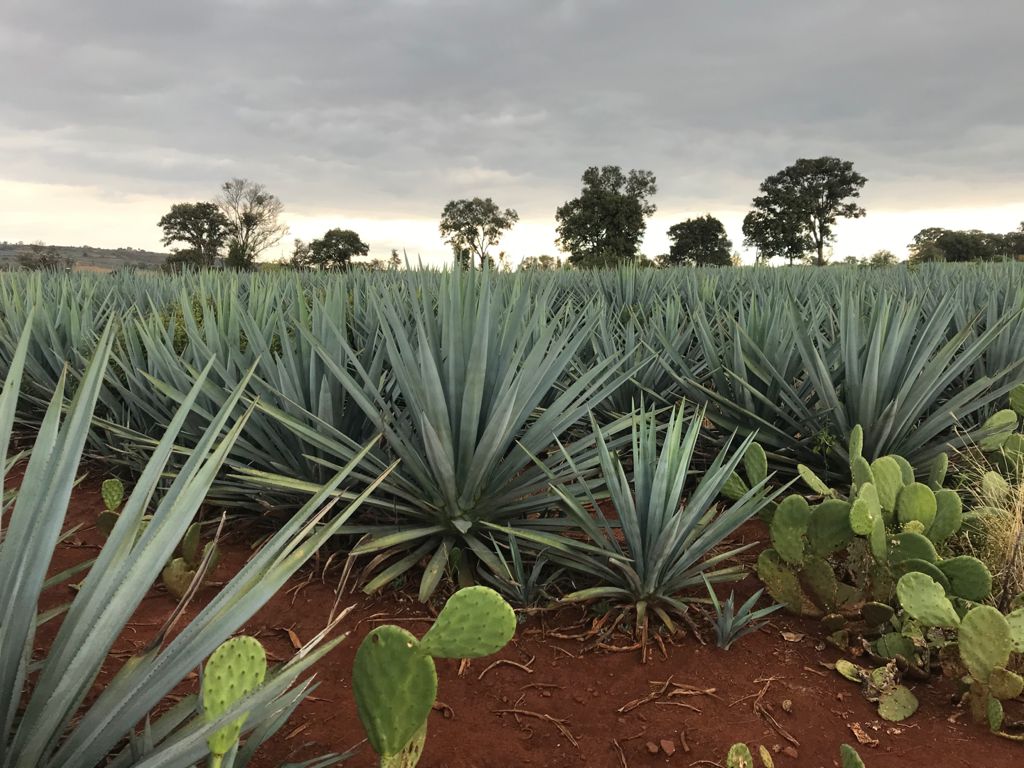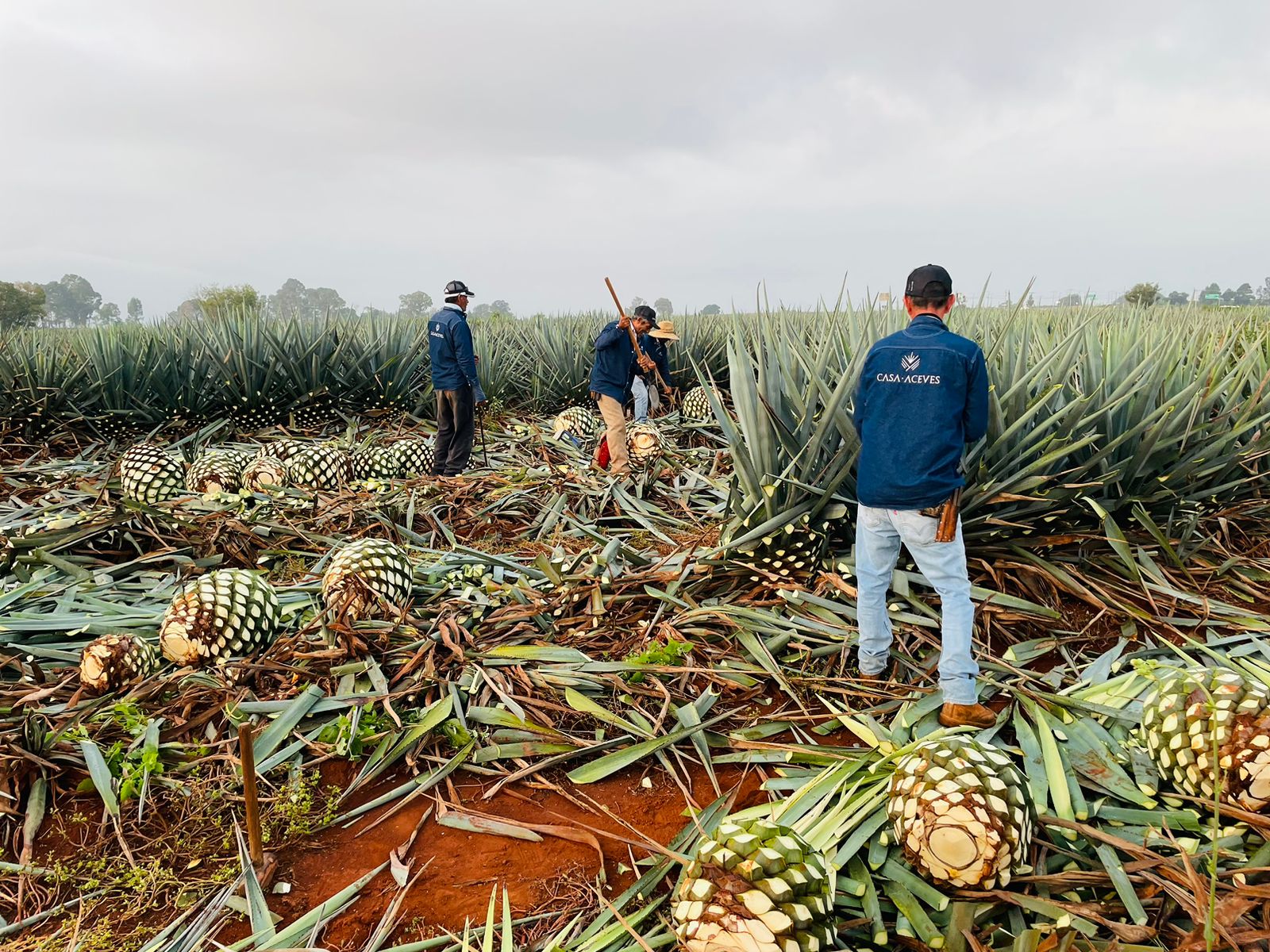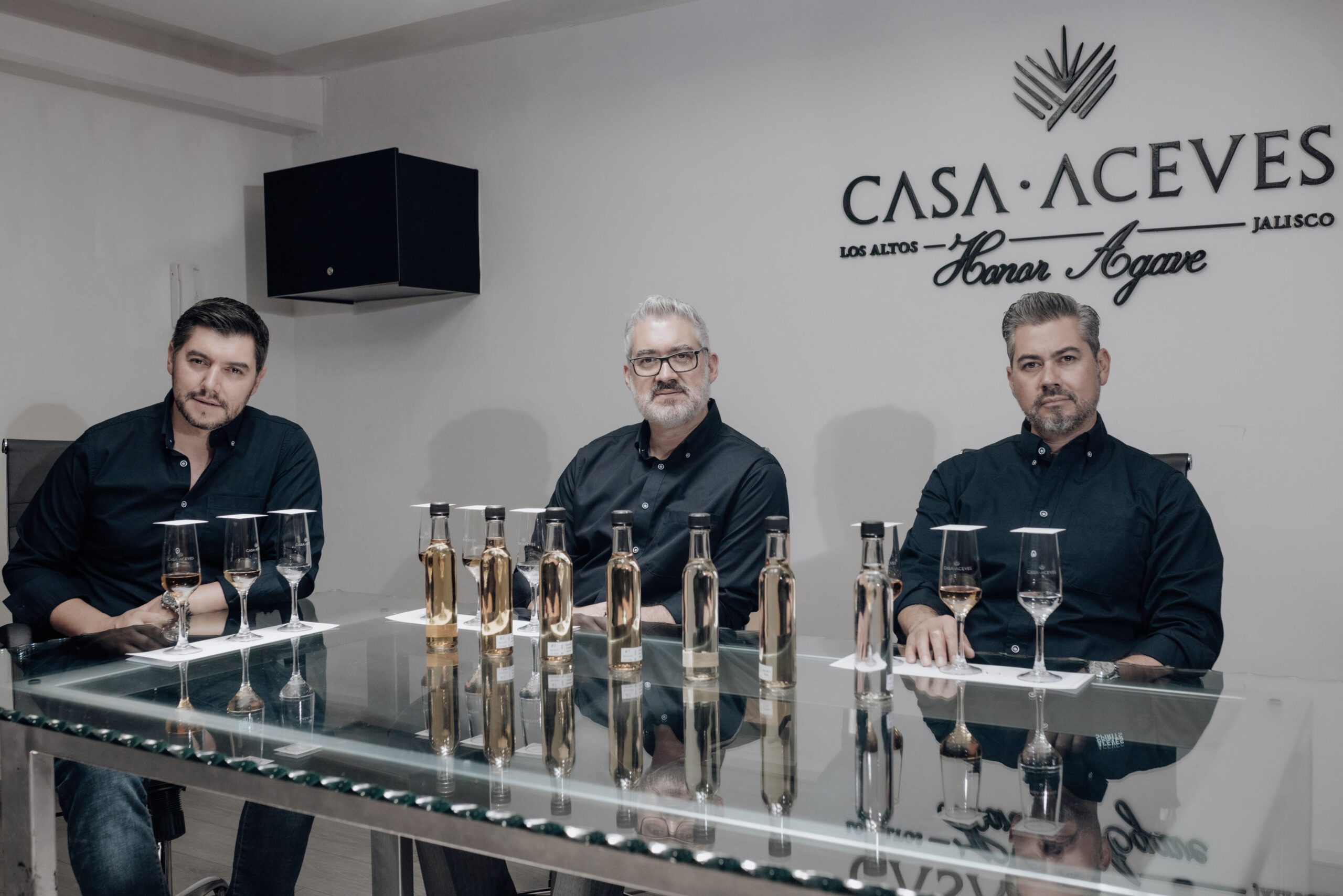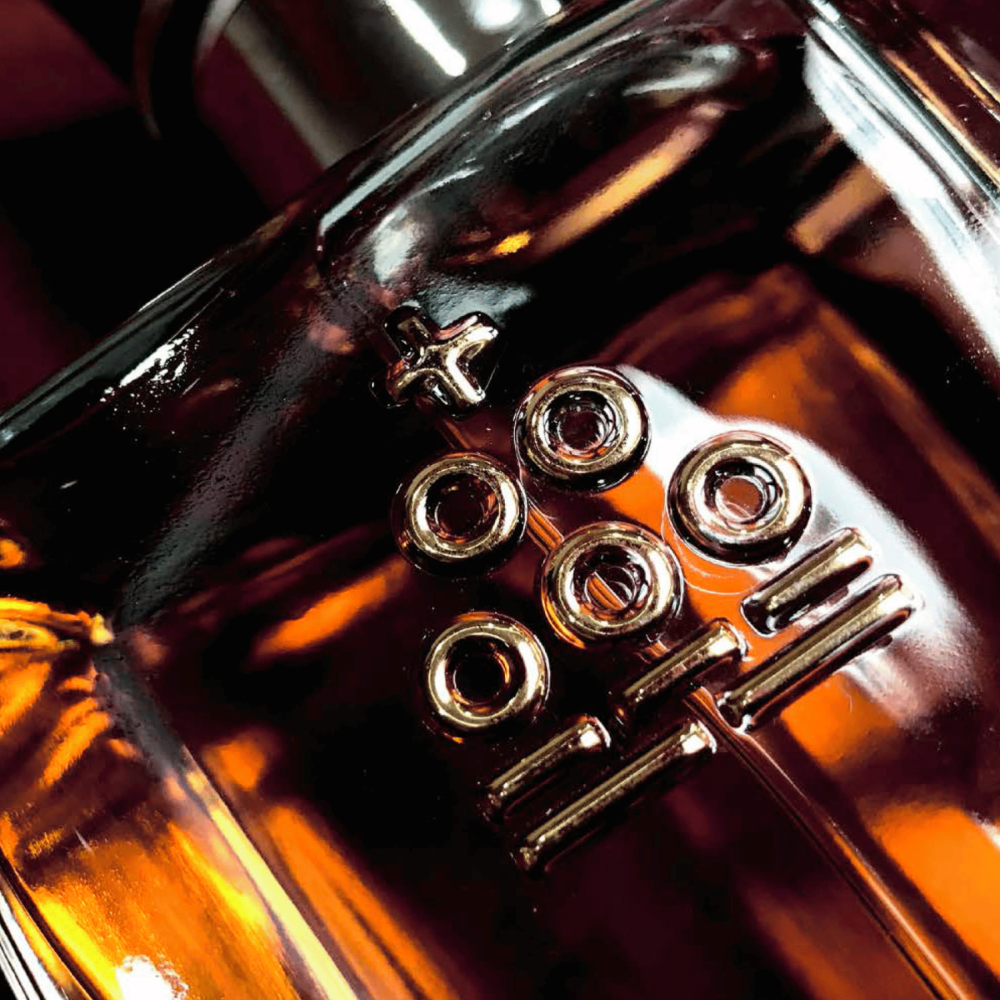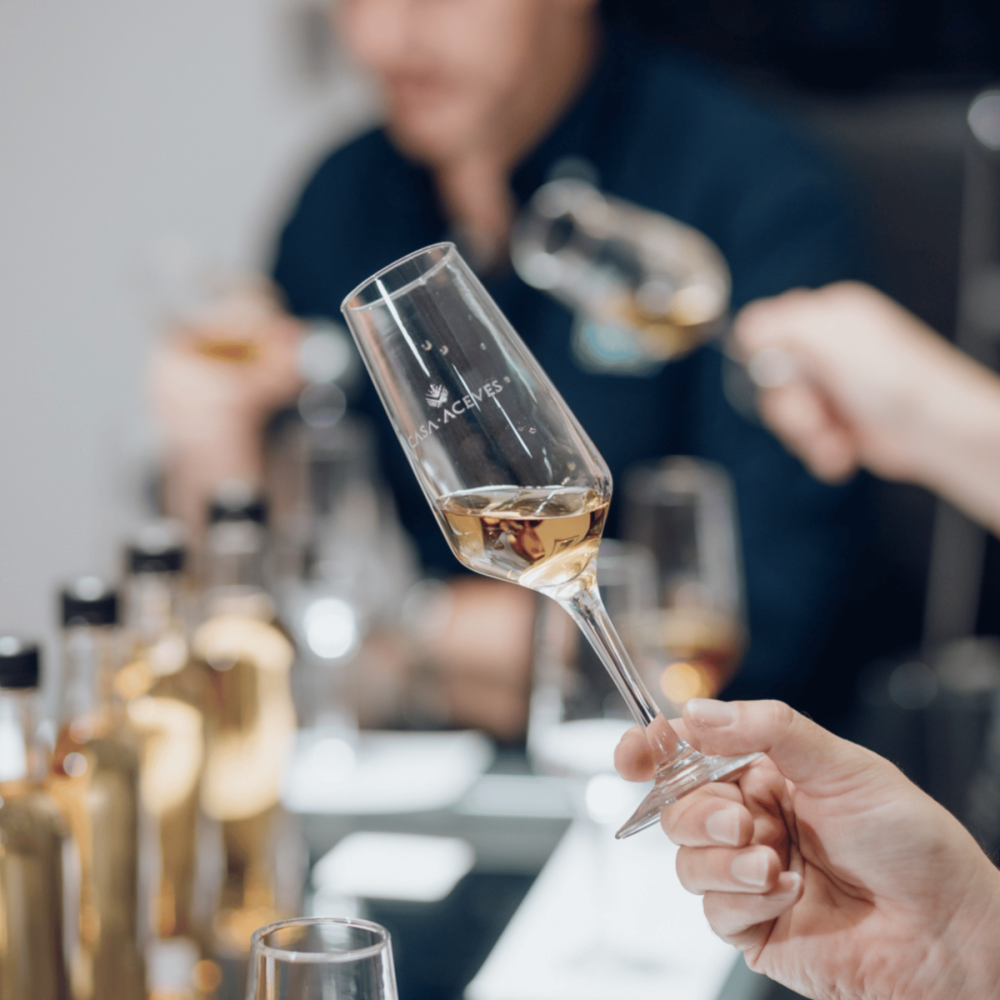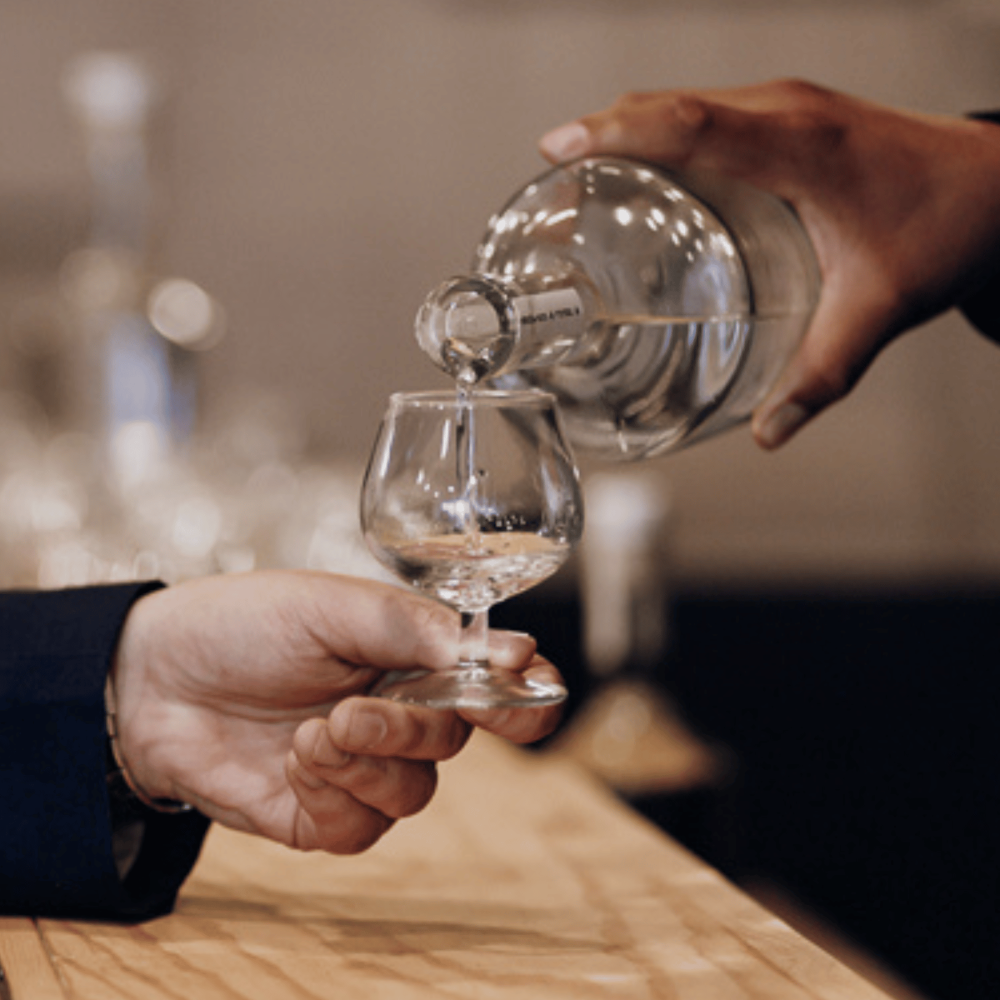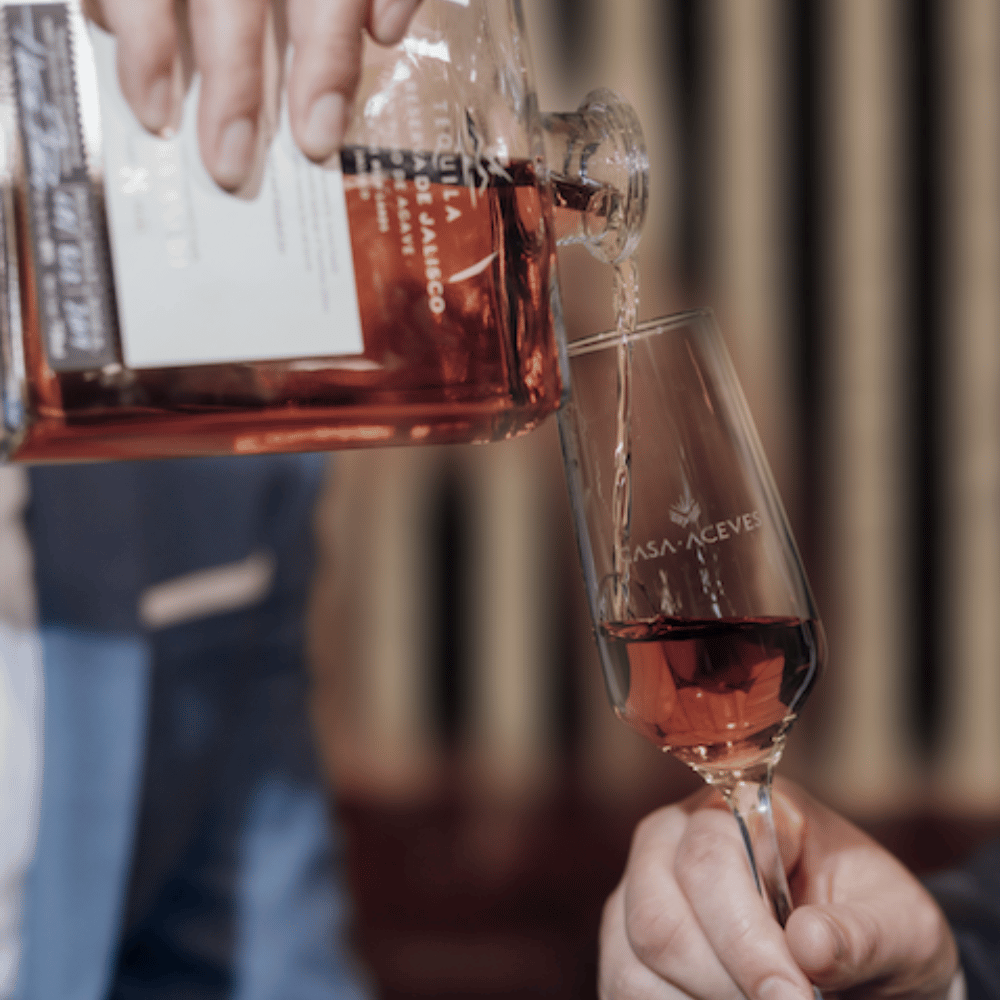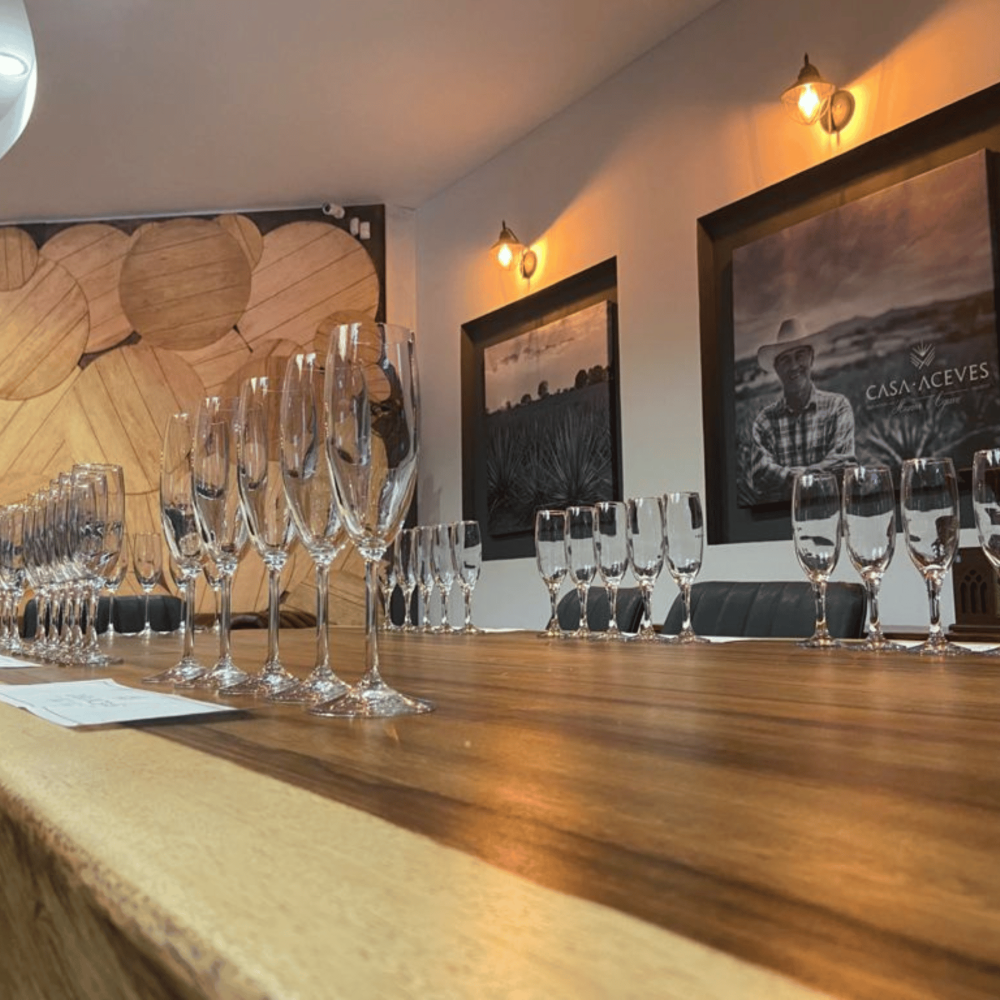Once considered to be a shot only suitable for consumption with a chaser of salt and lime, Tequila has followed hot on the footsteps of gin in becoming the latest spirit to go through a process of premiumization.
High-quality sipping tequila has become hugely popular in recent years and, according to the drinks market analysis company IWSR, is now the second-fastest growing spirits category, with a nine percent year-on-year growth.
Since 2002, data from The Distilled Spirits Council has shown an incredibly 706% increase in the sale of super-premium tequila, with global sales volume increasing by 64 percent.
Why Has Premium Tequila Become So Popular?
There are two primary reasons for the sudden surge in the popularity of premium tequila.
Firstly, the tequila industry has undergone a period of experimentation and evolution, moving from the bulk production of cheap spirits to a more super-premium and high quality product.
A good example of this would be Patrón Tequila, which has played a similar role to Grey Goose vodka in stimulating the market for premium versions of what was once regarded as a low-end spirit.
With the success of Patrón, other major players in the tequila industry have turned their attention to producing a premium product.
However, unlike premium spirits such as cognac and single malt whisky, the tequila sector hasn’t been closed off by aging legislation or trade body standards, allowing new and innovative brands access to the market.
Market and demographic changes have also massively increased the demand for super-premium tequila.
Demographic change in the USA, the second-largest consumer of tequila, has seen a renewed interest in all things Mexican, including Mexican spirits such as mezcal and tequila. This has resulted in a 30 percent rise in sales since 2014.
Additionally, drinking habits amongst young drinkers have moved away from cheap shooters and towards high-end sipping spirits and cocktails.
While Mexico and the USA are still the dominant markets for tequila, there has been a significant rise in global demand, as premium tequila becomes more popular in Asia and Australia.
The IWSR predicts that this market expansion will result in a 20% increase in the global demand for tequila over the next five years.
Tequila Industry
The peak started after covid in 2020
With the COVID-19 pandemic, more and more people found themselves working from home, and drinking from there as well. This meant good news for tequila distillers and the spirits industry, and nothing has expanded more than the agave-based spirit industry. In 2020, agave-based spirits were up by 9%, with tequila seeing an 8.5% increase in sales. Between 2020 and 2022 alone, tequila is expected to continue to grow by as much as 4%, meaning there’s plenty of money (and competition) in the tequila industry.
The global market for tequila is increasing as well. Hovering around $10.8 billion in 2020, experts forecast that the industry will be worth somewhere around $25.4 billion by 2026, growing at a rate of 14.4% between 2021-2026. However, many people are understandably on the fence about whether or not this increase is temporary. Luckily, there’s nothing to suggest this trend is temporary, with tequila showing steady growth through the years. For example, between 2014-2019, tequila sales grew by 4% while other spirits declined in popularity.
The main issue in the tequila industry currently faces is breaking out of US and Mexican markets, which historically account for up to 85% of worldwide sales, and introducing the rest of the world to the joy that is tequila; however, many brands are finding their tequila sales are increasing around the globe, as seen in Kendall Jenner’s tequila being shipped to over 80 countries around the world. Many companies are finding they don’t actually care about expanding into international markets; although, we believe that international distribution is the future of the tequila industry.
While many consider tequila traditional “shooter” drink, many brands are looking to produce high-quality tequilas that can easily be sipped rather than shot, which is slowly leading to more international markets accepting tequila as a staple spirit. Australia is a prime example of the success of the tequila industry in an international market, showing a 12% increase in sales in 2020 alone. As more companies focus on tequila as an enjoyable spirit in international markets, the tequila industry could more than exceed what experts forecast in future sales.
There are a variety of reasons we are seeing an increase in popularity for tequila, including:
Cocktail Culture
Which is taking the world by storm, with many finding that cocktails offer a whole new drinking experience. Younger people find that shots are passe, instead opting for higher-quality drinks they can sip and enjoy rather than the burning experience commonly associated with taking shots. Canned cocktails have exploded over the last year as well, with many finding they can get their favorite cocktail out of a can or bottle rather than making it themselves.
New Flavors
Traditional tequila still dominates the market, but many manufacturers are busy at work producing flavored options as well that compliment cocktail culture. From lemon to tarragon to lavender, natural flavored tequilas are rising in popularity as more and more people experience the joys of tequila with flavors they enjoy.
More Options
With well over 2,000 brands of tequila on the market, many people are looking to experience tequila in new ways. Most liquor stores or departments have a multitude of tequila brands they can purchase in-store, while online commerce allows people to buy a new brand with just a few mouse clicks. With more tequila options, people are more likely to try new brands to discover a new favorite.
Consumer Knowledge
As tequila rises in popularity, people seek more knowledge on the beverage as well. Tequila tastings, classes and cocktails are exploding in popularity, meaning that people are beginning to understand the complexity in tequilas’ tastes and compositions.
Focus on Quality
As people learn about and taste more tequilas, they’re learning what to expect from a high-quality tequila. This means that they want better tequilas—and they’re willing to pay higher price points to get it.
Brands That Tell Stories
Sharing knowledge, educating the consumer, sharing and respecting Mexican culture, the origin of the product and the heritage of agave. To transmit emotions with your brand is to give it a life of its own, an authentic personality that inspires your audience.
When you share emotions and create experiences, you build a special bond with your audience, they trust that your product is genuinely great.
The secret is to respect and not undermine their trust, be honest and consistent with the quality of the product you offer.
This is another key factor that premium brands are using, to highlight their brand and add unique value to the product they offer.
What is a Maestro Tequilero?
The artisanal elaboration and production of tequila is a very complex mission that is left in the hands of the master tequila makers, without them tequila would not reach the level of quality and exquisiteness that we are used to, they imprint in each bottle the necessary passion to taste this Mexican drink from the heart.
The maestros tequileros are the people who dominate 100% of the variables involved in the elaboration of tequila, from the selection of the agave, supervising the jima, arranging the milling, extraction and fermentation of the juices, and controlling every meticulous detail of the distillation process. In addition to being in charge of mastering the art of barrel making and blending the appropriate combinations.
What makes an authentic premium tequila?
So, what does it take to build a premium tequila brand?
It is all related to the production and respect for the traditional process applied in each step of its creation.
Here are the opinions of our expert master tequila makers, the Aceves brothers.
José Aceves
Premium is related to high quality.
It can also be related to a privilege of those consumers who can pay an additional amount.
Therefore, you cannot offer a generic or mass-produced product just because it is in a nice bottle.
Understanding quality as all the inherent properties of the tequila that allows it to be distinguished and valued compared to others, a high-quality tequila implies special care throughout its production process, such as the selection of the raw material so that it is at its optimum point of maturation, unhurried cooking and fermentation and a very careful distillation that recovers those aromas that the master distiller wants to highlight without undesirable components.
The elaboration of a premium tequila implies a meticulous manual work of selection, classification and verification by the expert maestro tequilero, therefore, its production is limited by the capacity he has to carry out the work with the methods available to him and, in addition, this process is carried out WITH passion WITHOUT seeking cost savings.
Premium not only refers to the liquid but can also imply a good presentation, which is not only an elegant container with accessories at a high price, but also implies good taste.
The perceived value of a premium tequila must be notorious and a brand with these characteristics must have the capacity to seduce anyone who claims to be a tequila neophyte, after all, it is the premium brands, the authentic premium ones, that are expanding the taste for this extraordinary Mexican spirit.
Álvaro Aceves
To be a premium tequila, the first thing to consider is that it must be made with 100% Agave tequilana weber, as indicated in norm 006 with agaves at their optimum point of maturity.
It must be rich in sugars, so when cooked, the flavors of the honeys dominate in the essence of the drinks. It should have enough sugars for an optimal fermentation.
The agave honeys and the entire process is meticulously controlled at each step and each point by the master tequilero. If the product is matured, it acquires extra complexity from different types of barrels. Barrels used previously for bourbon, wine, cognac… to really generate more intense flavors, giving it more bouquet, resulting in a robust and sophisticated tequila. A premium tequila should not be drunk in shot glasses, it must be served in a flute style glass to properly taste it and be able to distinguish the details of its body and aroma, as well as each flavor that the product has. It is not just drinking tequila, it is the opportunity to taste and enjoy the flavor of the agave.
It is wonderful to be able to appreciate in a glass the flavor of a sweet agave and feel the notes of the soil in which it grew.
Tequila should be drunk in a state of complete awareness.
César Aceves
Packaging is a good component of what characterizes a premium tequila, but it is only what the consumer sees at the time they buy it in the store. When you see good packaging on the shelf, it seems like a direct indicator of a premium product, but the real quality is in the content in the bottle.
For me, a premium product starts with a good blanco, a traditional and well-made tequila, with a selection of 5 or 6 year old agaves.
The traditional process is done in pot stills with a performance of 7 to 8 kilos per liter. This performance says a lot about the quality of the distillery and its product, because there are factories that have a performance of 4 to 5 kilos of agave per liter produced; the actual name for that product would be an agave alcohol.
Talking about products aged in barrels, such as reposados, añejos or extra añejos. The key is honesty, that the resting time mentioned on the bottle is real; although we know that the industry and the Regulatory Council carefully verifies this, it does not always give us 100% certainty that the producer is honest with the time declared.
Regarding agaves, we only choose agaves from the highlands of Jalisco due to the characteristics of the soil; this gives us a more floral and fruity profile.
Our approximate boleo, or the weight we look for in premium agaves is between 40 to 60 kilos per piña, and the jima we do is in agaves matured for 5 to 6 years, after that time it gets over matured and delivers different properties to the liquid. Our tequilas normally have a blend of agaves between 5 and 6 years old, allowing us to have floral and fruity tones. We want you to feel and taste the agave notes when tasting a blanco tequila.
Tequilas from Jalisco
The history of Tequila is tumultuous. Despite many highs and lows, currently, Tequila is enjoying a massive surge in popularity. A blue agave plant is a crucial ingredient in the production of Tequila.
It grows chiefly in the region north of Tequila, 65 kilometers (40 miles) west of Guadalajara, and in the Jalisco Highlands (Los Altos de Jalisco) in the state of Jalisco, in western central Mexico. Each place grows agave in a slightly different manner.
Los Altos highlands produce blue agaves that are larger, sweeter, and have a more intense aroma. The fragrance and flavor of the Agaves planted in the valley are more herbaceous.
In the Highlands region, the red volcanic soil makes it suitable for cultivating blue agave plants, of which more than 300 million are harvested every year.
According to Mexican law, Tequila may only be produced in Jalisco and limited municipalities in Michoacán, Guanajuato, Tamaulipas, and Nayarit.
Further, in 1974, Tequila received international recognition and acceptance as a uniquely Mexican product – the AOC, or Appellation de Origin Controllee was published in 1977.
But it took Mexico until 1996 to sign an international agreement that recognized Tequila as a product from a specific region of Mexico.
Although Japan, South Africa, and Spain attempted to ignore this agreement, their actions were met with protests from the Mexican government. The Mexican tequila industry opened trade offices in Madrid and Washington to prevent such practices. The purpose of the offices was to protect the name Tequila and sell the spirit overseas.
Since 1978, the Normas Oficiales Mexicanas (NOM) have regulated all aspects of tequila production, distribution, and quality.
What’s Next for Premium Tequila?
There are a number of trends in the growing tequila premium space that look promising for investors, distillers, and drinkers alike.
Distillers are now able to invest in creating innovative products, knowing there is a significant market for them. The massive popularity of tequila cristalino and 100 percent agave tequilas are a great example of this trend.
As new brands, new expressions, and methods both new and very traditional come onto the market, the rapid growth of the premium tequila market looks set to continue.
How To Learn More About Authentic Mexican Premium Tequilas
Now is an excellent time to consider learning more about premium tequila and your first step could be to follow industry insiders and knowledgeable experts.
With three generations of tequila development experience and an unwavering commitment to award-winning quality and sustainability, Casa Aceves has the knowledge and skills to help you understand what is behind authentic high-quality tequila.
👇🏻 Follow Us On Instagram to learn more about the amazing world of tequila, from an insider’s perspective. 🥂✨
